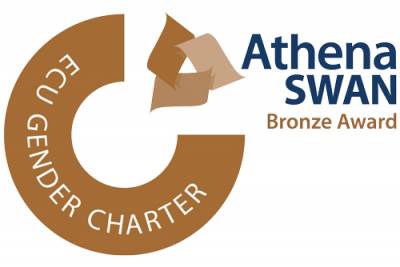Research Fellow in Papyrology

Email: e.prodi@ucl.ac.uk
Research interests: Greek papyrology; history of the book in antiquity; archaic Greek lyric; Attic tragedy; Greek and Latin literary scholarship; Byzantine intellectual history.
Profile
Enrico is a Research Fellow working in the AHRC-funded project ‘Hexameters beyond the Canon’. Before joining UCL he was a Junior Research Fellow at Christ Church, Oxford; a Marie Curie Fellow at Ca’ Foscari, Venice; a lecturer in Greek and Latin language at Balliol College, Oxford; and most recently a lecturer in Greek literature at Magdalen College, Oxford. He has been a visiting professor at the Scuola Normale Superiore in Pisa and at the University of Milan. He holds a BA from Bologna and an MPhil and DPhil from Oxford.
‘Hexameters beyond the Canon’ aims to study the production and circulation of non-canonical Greek poetry in hexameters in Egypt under the Roman Empire. Based at the University of Oxford but conducted jointly by researchers from Oxford and UCL, the project focusses on papyrus fragments from the site of Oxyrhynchus, dating from the first to the sixth century CE. The hexameter – regarded since the earliest Greek literature as the most illustrious poetic form – was adopted for functional purposes at all levels of society, from grandees to everyday people, commemorating local events, private and public: from amateurs to wandering poets, from teachers to civil servants willing to please some superior, and more or less literate soldiers recording their social aspirations. The varied nature of these texts allows us to recover an entire strand of literature otherwise ignored by the official high culture: it provides a rare glimpse of the everyday cultural life of the time from a geographically peripheral perspective.
Enrico was trained in papyrology in Bologna and Oxford. He is the editor of several previously unpublished papyri and most of his research and publications to date have concerned literary texts preserved on papyrus. His role in the project consists primarily of transcribing, studying, translating, and publishing for the first time some of these tantalising, previously overlooked fragments.
In his spare time, Enrico continues to work on his monograph: a critical edition, with ample introduction and commentary, of the fragments of Pindar’s processional songs (Prosodia). Mostly preserved on papyrus, these poems and their fragmented afterlife offer important insights into early classical Greek lyric; the role of song in divine and heroic worship; the interplay between poetry, ideology, and institutions; and the study of earlier Greek poetry in the Hellenistic, Imperial, and even Byzantine period.
Selected Publications:
Edited books and journal issues
Τζετζικαὶ ἔρευναι, Bologna: Pàtron Editore 2022 (https://www2.classics.unibo.it/eikasmos/doc_pdf/studi_online/04_tzetze.pdf)
(with S. Vecchiato) Φαίδιμος Ἕκτωρ : Studi in onore di Willy Cingano per il suo 70° compleanno, Venice: Edizioni Ca’ Foscari 2021. (https://edizionicafoscari.unive.it/en/edizioni4/libri/978-88-6969-549-0/)
(with T.R.P. Coward) Didymus and Graeco-Roman Learning, thematic issue of BICS 63.2 (2020).
(with V. Cazzato and D. Obbink) The Cup of Song: Studies on Poetry and the Symposion, Oxford: Oxford University Press 2016.
Journal articles:
- ‘A fresh look at P.Oxy. 2459 (Euripides, Oedipus)’, Zeitschrift für Papyrologie und Epigraphik 221 (2022), 8–15.
- ‘Tragic hexameters and generic archaeology: Hera’s hymn to the Nymphs (Aesch. frag. 168-168b Radt)’, Classical Philology 117.2 (2022), 234–58.
- ‘Un prosodio pindarico (Pae. 20): introduzione, testo critico e commento’, Quaderni Urbinati di Cultura Classica 125 (2020), 11–48.
- ‘Polycrates’s guests: Extraneous text and ancient conservation on P.Oxy. 1790’, Segno e Testo 17 (2019), 1–34.
- ‘L’edizione antica delle opere di Archiloco’, Prometheus 45 (2019), 3–44. (https://oaj.fupress.net/index.php/prometheus/article/view/1078)
- ‘Text as paratext: Pindar, Sappho, and Alexandrian editions’, Greek, Roman and Byzantine Studies 57.3 (2017), 547–82. (https://grbs.library.duke.edu/article/view/15889)
- ‘P.Oxy. 2174 fr. 5: an Odyssey for Hipponax?’, Archiv für Papyrusforschung und verwandte Gebiete 63.1 (2017), 1–10.
- ‘P.Oxy. 2448 (Pi. fr. 215 Sn.-M.) and Pindar’s Prosodia’, Zeitschrift für Papyrologie und Epigraphik 185 (2013), 53–59.
Book chapters:
- ‘Notes on P.Oxy. XXXII 2636 (commentary to Pindar?)’, in Φαίδιμος Ἕκτωρ (cit.), 185–202.
- ‘Poem-titles in Simonides, Pindar, and Bacchylides’, in B. Currie and I. Rutherford (edd.), The Reception of Greek Lyric Poetry in the Ancient World: Transmission, Canonization, and Paratext, Leiden/ Boston: Brill 2019, 462–515.
- ‘Dancing in Delphi, dancing in Thebes: The lyric chorus in Euripides’ Phoenician Women’, in R. Andújar, T.R.P. Coward, and T.A. Hadjimichael (edd.), Paths of Song: The Lyric Dimension of Greek Tragedy, Berlin/Boston: de Gruyter 2018, 291–313.
- ‘Titles and markers of poem-end in the papyri of Greek choral lyric’, in T. Derda, A. Łajtar, and J. Urbanik (edd.), Proceedings of the 27th International Congress of Papyrology, Warsaw: Journal of Juristic Papyrology 2016, II 1137–84.
 Close
Close



